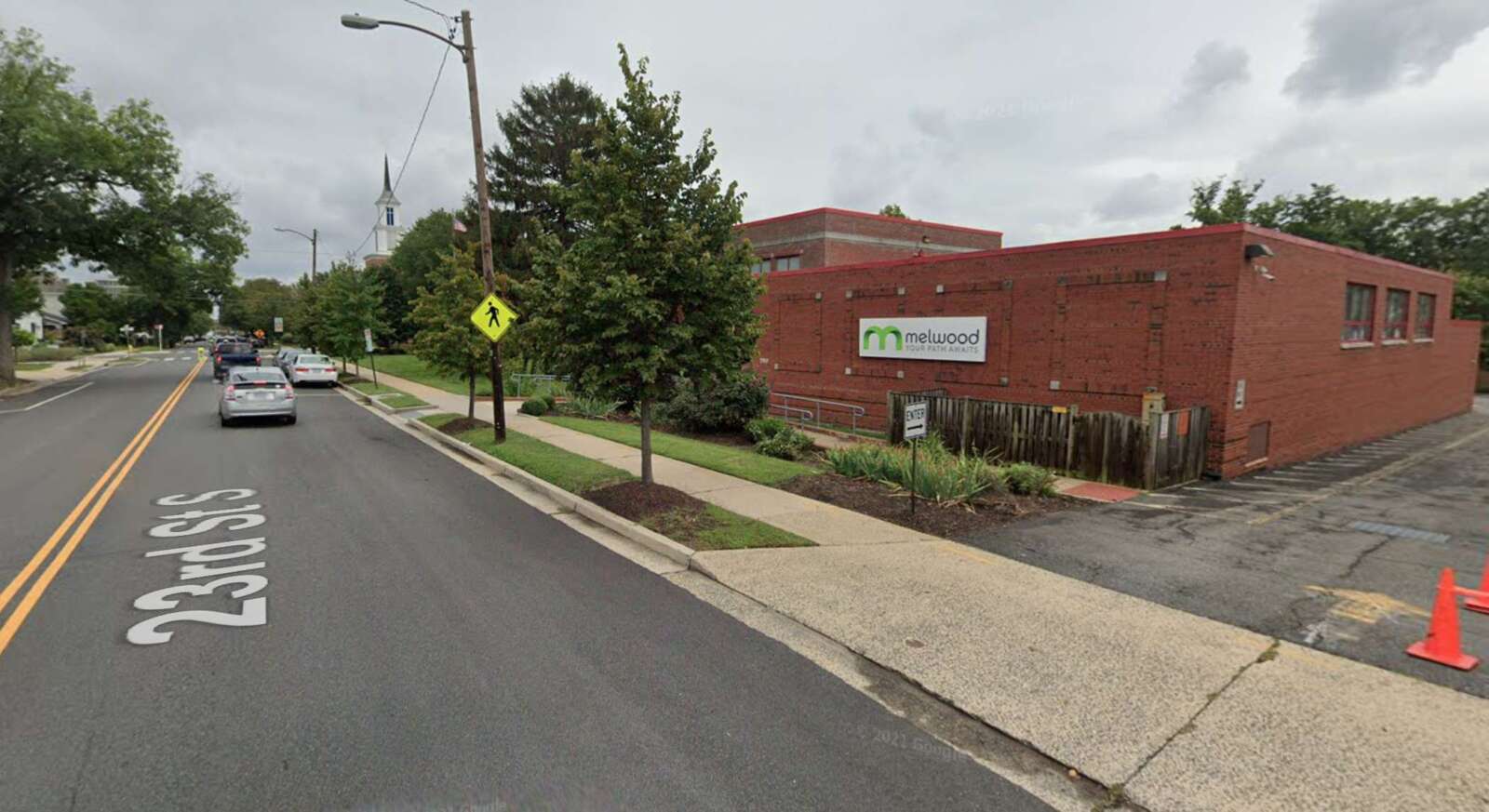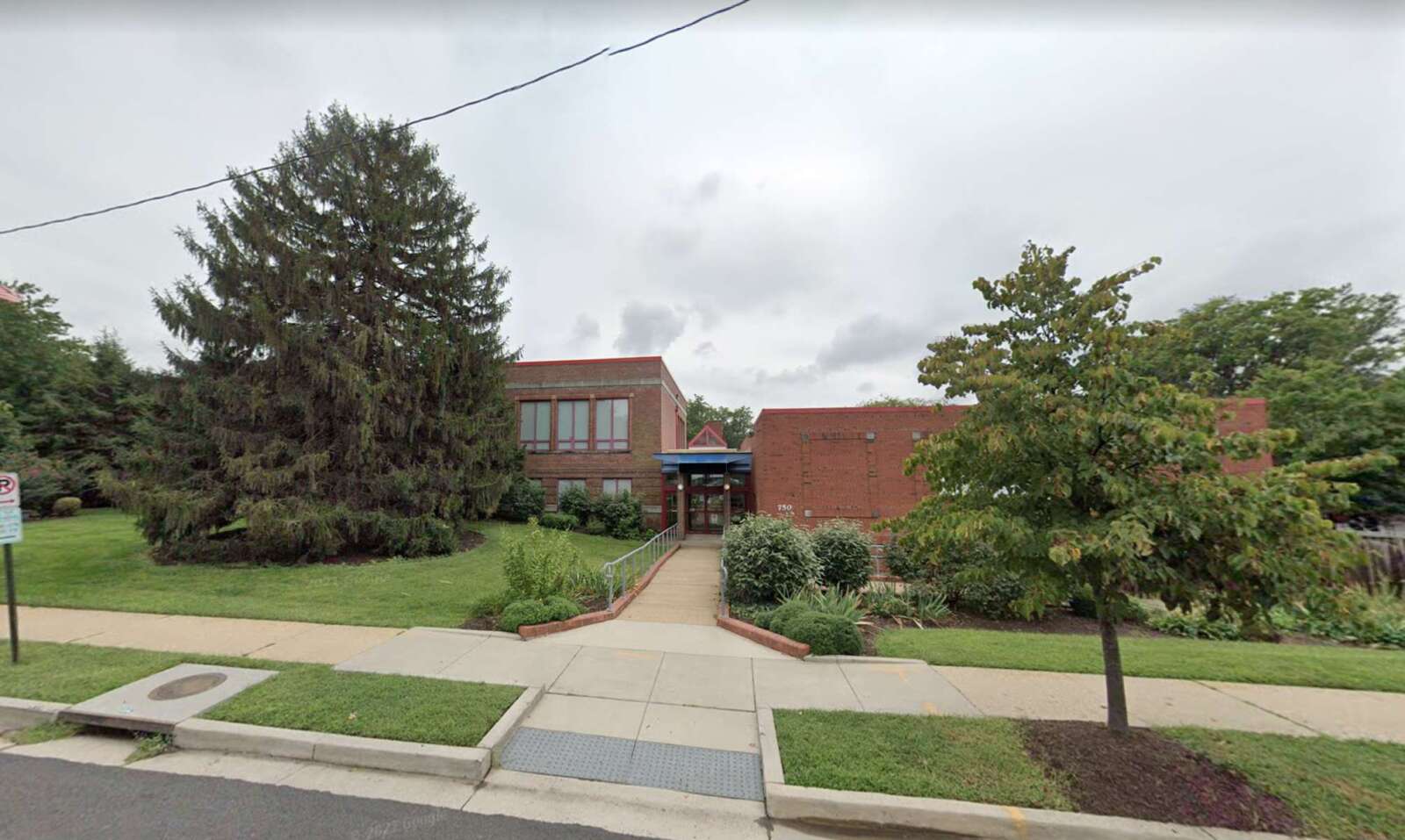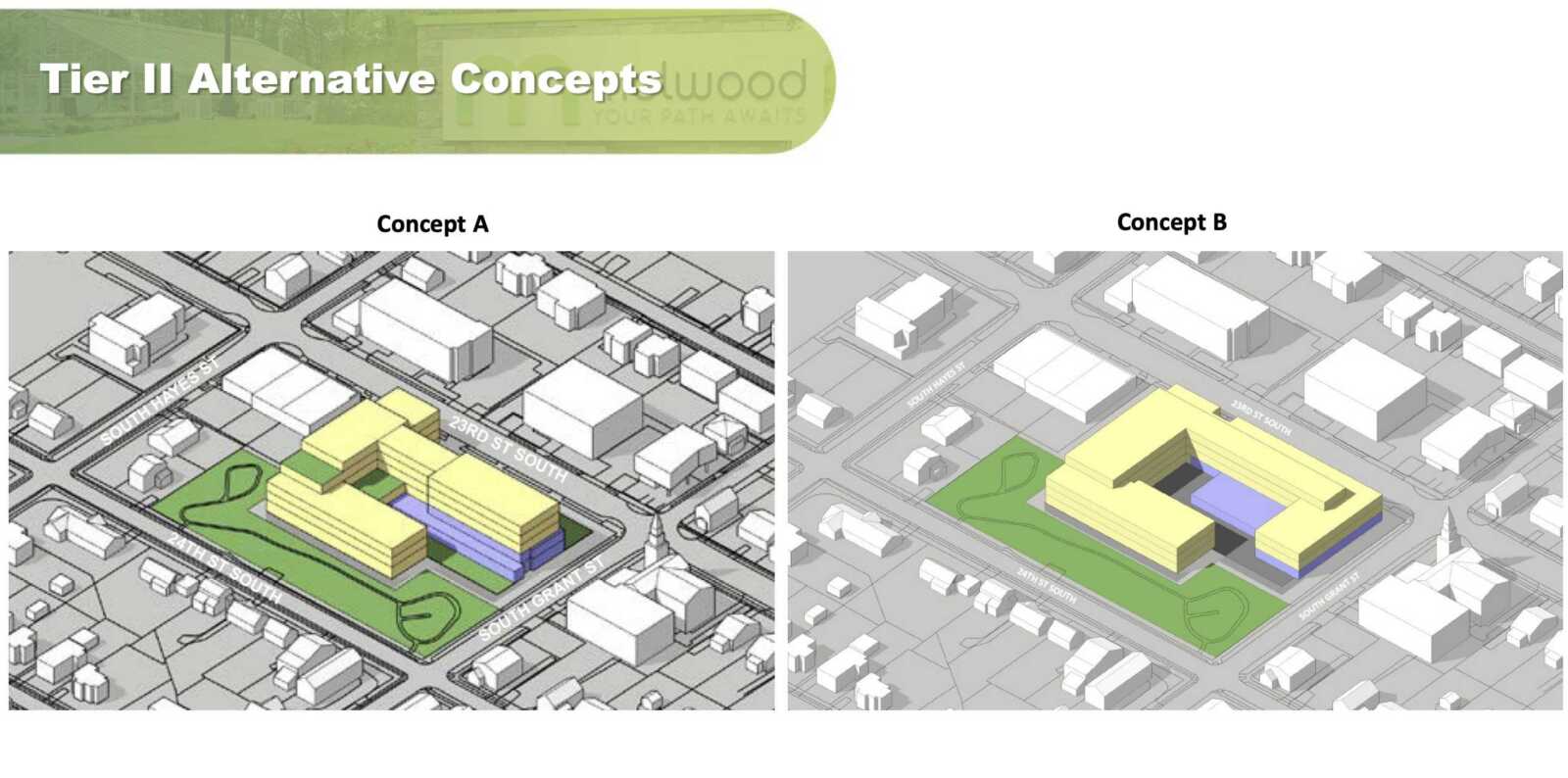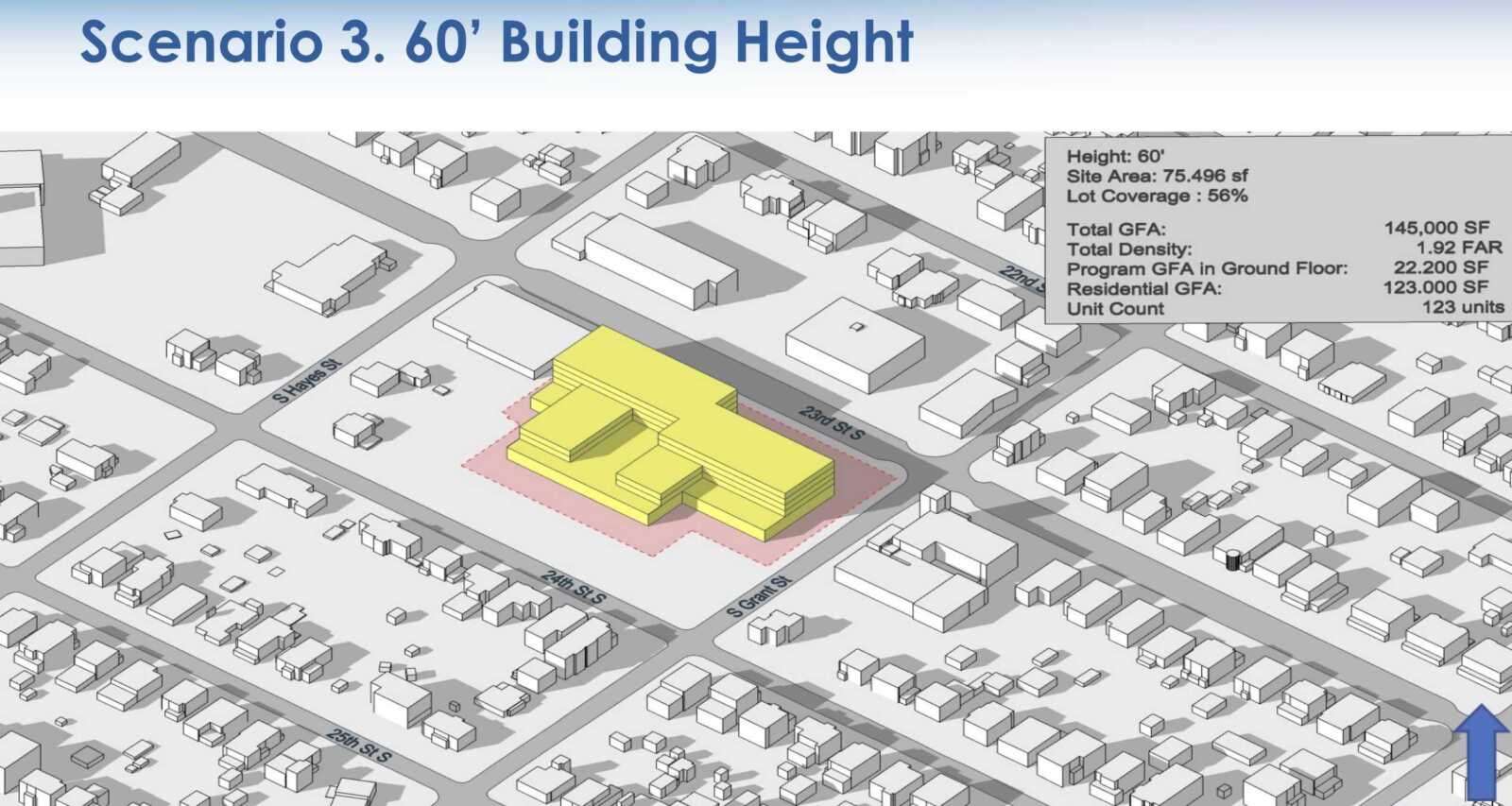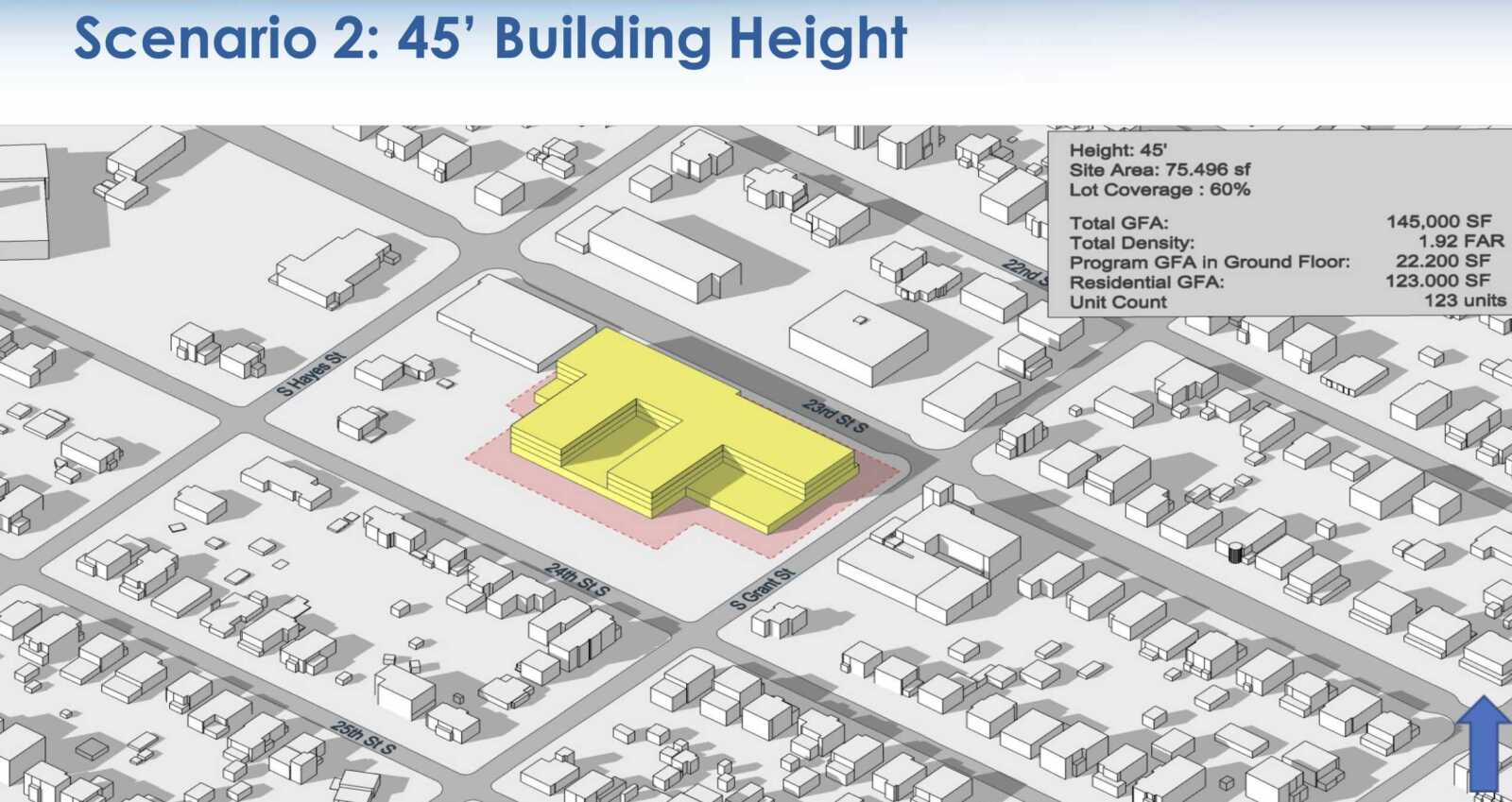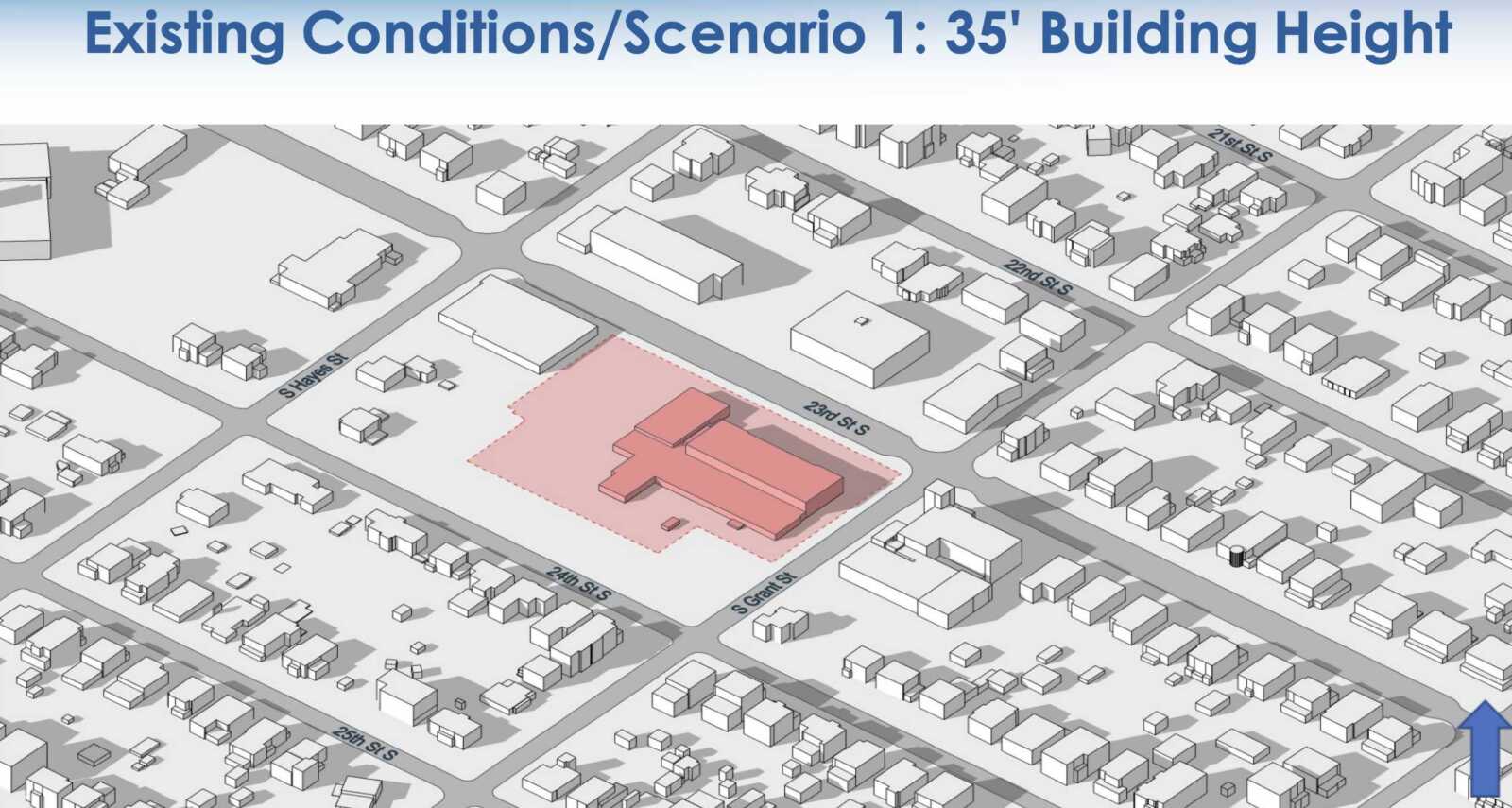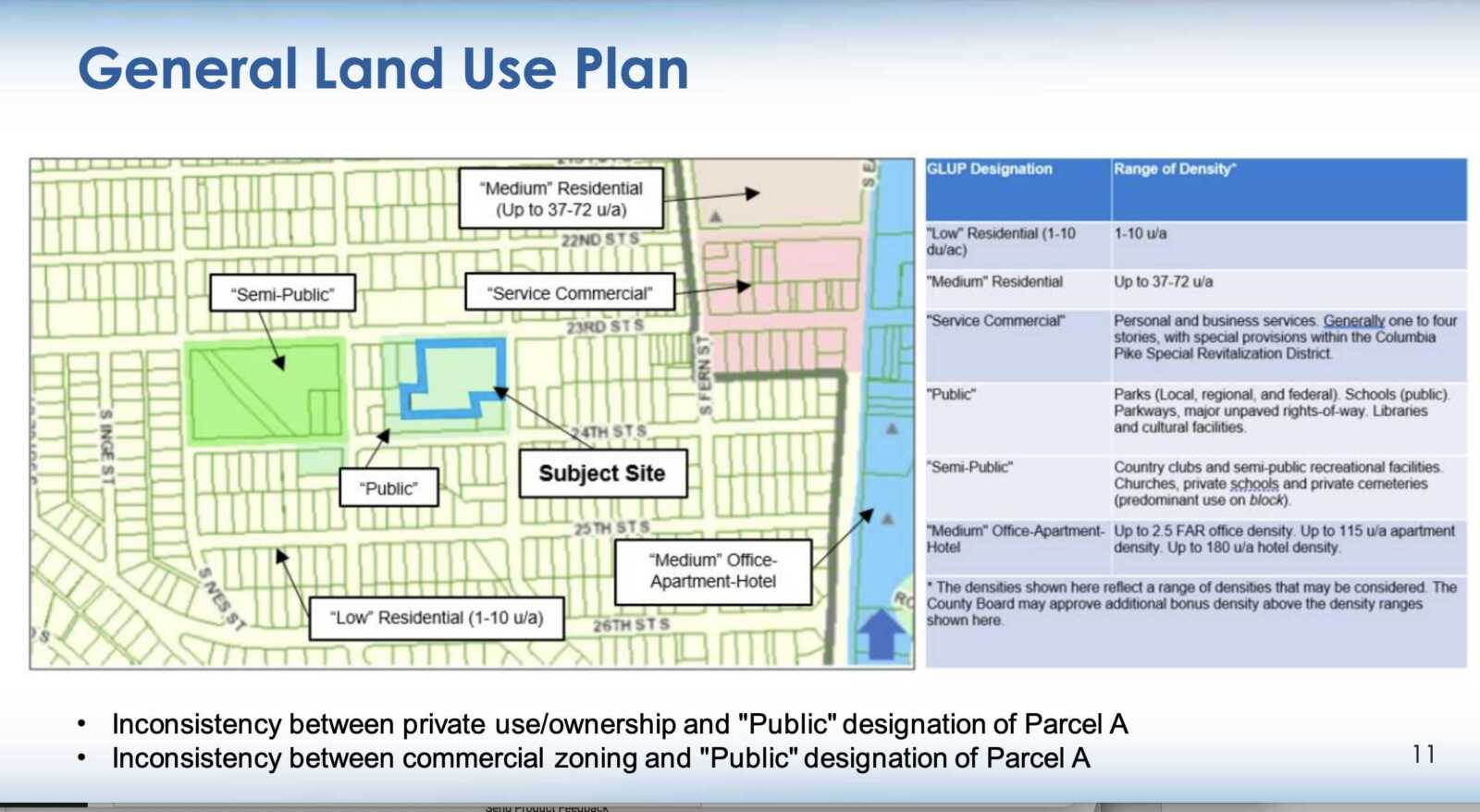(Updated at 4:30 p.m.) A land-use study teeing up an affordable housing redevelopment project in Aurora Highlands has generated significant interest as it nears completion.
Melwood, a D.C. area nonprofit that provides services to and employs people with disabilities, is looking to redevelop property it owns at 750 23rd Street S., two blocks west of “Restaurant Row” in Crystal City.
It has picked nonprofit developer Wesley Housing to replace its aging building — from which it offers job training and placement, among other services, to people with disabilities — with 104 units of affordable housing.
Many units would be for households earning around 60% of the area median income. Some units would be set aside for very low-income households and up to 30 units could be set aside for people with disabilities. Melwood would continue using the site to provide services to people with disabilities.
“This collaboration with Wesley Housing has the power to transform the lives of people with disabilities and support Arlington’s continued leadership in building an inclusive community,” Melwood President and CEO Larysa Kautz said in a statement. “We appreciate their support in helping people with disabilities find a place to call home.”
Should everything go to plan, work could be underway in about two years.
“While we’re still very early in the planning process, we hope to seek tax credit financing in 2025 and to break ground shortly thereafter,” a spokeswoman for Melwood told ARLnow.
First, Melwood needs the site’s land use designation changed from “public” use to a low-density residential use, for up to 36 housing units per acre. It can request this change through a Special General Land Use Plan (GLUP) Study process.
This May, the county’s Long-Range Planning Committee recommended studying this change because the county has no planning guidance for the site, and its “public” use is at odds with its private ownership and commercial zoning status. Still, members had concerns about building heights and transitions, density and how the project could impact adjacent Nelly Custis Park.
This fall, county staff studied the site, its potential 4- or 5-story buildings, and other topics, including transportation. Last week, staff briefed the Long Range Planning Committee on its findings as well as the results of a recent online survey.
Staff said a 4-story building would be slightly taller than existing churches nearby and would provide more space for programming. A 5-story building would allow for more open space and a better transition to Nelly Custis Park. It determined the existing transportation system could handle the influx of residents but more study would be needed.
As for the survey, 240 people participated, mostly nearby homeowners. Some 38-42% of respondents said building tall was fine — given the mix of buildings and Metro station nearby — and expressed enthusiasm for more affordable housing.
Many were concerned the development is too big and would introduce too much density. One respondent who lives across the street said the county “has not done its due diligence in studying impacts to traffic, pedestrian safety, or ecosystem impacts” and the building “is not consistent with the sector plan or neighborhood.”
The Aurora Highlands Civic Association also opposes the project, saying it conflicts with the Crystal City and Pentagon City sector plans, which designate the area “to be protected as a low-density single family neighborhood.”
When these plans were drafted, the Aurora Highlands and Arlington Ridge civic associations “agreed to accept additional height in the center of Crystal City with the assurance… that the surrounding neighborhoods… would continue to be planned and zoned for their current use,” writes AHCA President Cory Jacobson Giacobbe.
Giacobbe says changing the established general land-use plan so Melwood can build apartments will instead set a precedent for eliminating protection of current low-density neighborhoods. He noted the project resembles a proposal to redevelop Clarendon Presbyterian Church with affordable housing, which some neighbors and a land-use attorney also oppose on the grounds of precedent.
Staff received several letters of support, including from the National Landing Business Improvement District and the Arlington Chamber of Commerce and other neighbors.
“I recognize that some residents continue to fear loss of their single-family neighborhoods,” wrote resident Carol Fuller, while noting the site is not in a primarily single-family area. “It is true that the scale of development presents many challenges. However, our world is changing and we must adapt in order to plan a better, more livable community.”
Next, county staff will develop a draft study document and make it available for public comment. The Planning Commission and Arlington County Board will hold public hearings on staff’s request whether or not to advertise and accept this study.
That action would not trigger a land-use designation change. The County Board can amend the site’s land use when they consider a full application and related zoning requests from Melwood and Wesley Housing later on.


